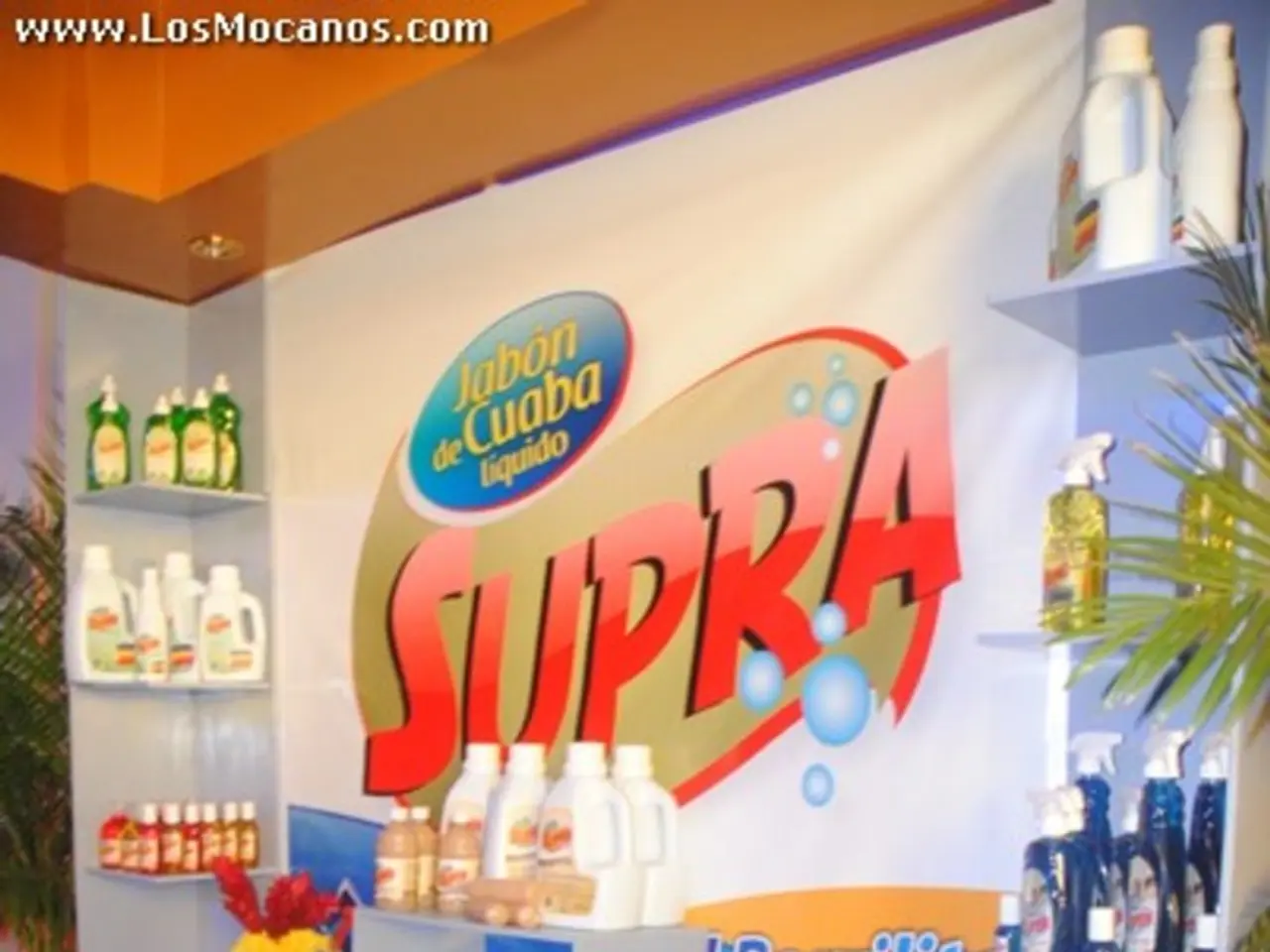Changes in manufacturing and consumer habits driven by cosmetic certification processes
In the ever-evolving world of cosmetics, transparency and environmental responsibility are becoming increasingly important. Brands are taking notice, with sustainability, cruelty-free testing, and "clean" beauty becoming industry goals that translate into coherent actions.
One such brand is Provital, a company that specialises in developing natural active ingredients. They have obtained several cosmetic certifications that underscore their commitment to natural ingredients and sustainable practices. These include Halal, Cosmos, EcoVadis, and UEBT membership, and they calculate the percentage of natural ingredients in accordance with the ISO 16128 standard.
Key certifications in the natural cosmetics industry include the NSF Vegan and Cruelty-Free Certification, COSMOS Organic Standard, NATRUE Certification, and Leaping Bunny (Cruelty Free International). Each of these certifications addresses critical consumer demands for sustainability, ethical sourcing, and transparency.
The NSF P543 Program, for instance, certifies vegan and cruelty-free products via strict standards that prohibit animal-derived ingredients and animal testing, and require supply chain and compliance monitoring to ensure ethical claims are science-backed and verifiable.
The COSMOS Standard, on the other hand, focuses on organic and natural cosmetic ingredients from sustainable farming and environmentally sound manufacturing. It mandates eco-friendly packaging and waste management plans, reinforcing product safety and environmental responsibility.
NATRUE Certification emphasises transparency and third-party verification of truly natural cosmetics, setting stringent quality standards to differentiate genuine natural products from less rigorous claims.
Leaping Bunny Certification stands as the global benchmark for cruelty-free cosmetics, requiring brands to eliminate all animal testing, including at supplier levels, enforce supply chain audits, and undergo ongoing independent compliance checks, assuring consumers of ethical production.
General principles guiding natural cosmetic certifications include the use of botanical, renewable, and safe cosmetic ingredients, adoption of sustainable packaging and production methods, and alignment with international standards like ISO 16128, COSMOS, and other eco-labels that encompass environmental, health, and social criteria.
These certifications help meet growing consumer demand for ethical, sustainable, and scientifically validated cosmetic products by providing trustworthy verification of ingredient sourcing, environmental impact, and animal welfare compliance. They also combat greenwashing by establishing independent audits and supply chain transparency.
The United Nations aims to reverse the global trend towards the depletion of natural resources to promote sustainable coexistence of humans and the environment. Organic, natural cosmetic certifications and indications that products are not tested on animals are crucial to meeting this demand.
Companies in the natural cosmetics industry are demonstrating greater transparency to more conscious consumers. Brands are redefining their cosmetic products and processes, focusing on ethical sourcing of ingredients, eliminating petrochemical products, and adopting new packaging practices.
This trend is part of the Sustainable Development Goals of the United Nations, specifically Goal 12 which focuses on responsible production and consumption. Natural cosmetics are experiencing a global increase in demand due to consumers becoming more informed and seeking products aligned with their values and lifestyles.
Provital takes the industry's challenges seriously and responds to the demands of increasingly aware and informed consumers. They aim to care for the environment, people, and communities in which they have an impact, and they are taking action to advance and develop innovative products while ensuring an ethical and sustainable supply chain.
Today, the term "natural" in cosmetics has evolved to encompass a broader meaning, including healthier alternatives, food-related concepts, vegan, non-GMO, and organic. Provital, with their focus on innovative and effective products that align with consumer demands for natural, organic, and sustainable beauty, is at the forefront of this evolution.
Natural cosmetic brands are acquiring and using natural cosmetic certifications to prove their commitment to transforming their concept of natural into concrete actions. The cosmetics market is responding by offering products that are safe for humans and the environment. Provital, with their numerous certifications and commitment to sustainability, is a prime example of this response.
- Science plays a crucial role in the development of cosmetics as brands strive for transparency and environmental responsibility.
- Provital, a company specialized in natural active ingredients, offers coherent actions towards sustainability, cruelty-free testing, and "clean" beauty.
- The NSF Vegan and Cruelty-Free Certification, COSMOS Organic Standard, NATRUE Certification, and Leaping Bunny (Cruelty Free International) are key certifications in the natural cosmetics industry.
- The NSF P543 Program certifies vegan and cruelty-free products by strict standards that ensure ethical claims are science-backed and verifiable.
- The COSMOS Standard focuses on organic and natural cosmetic ingredients from sustainable farming and environmentally sound manufacturing.
- NATRUE Certification sets stringent quality standards to differentiate genuine natural products from less rigorous claims.
- Leaping Bunny Certification is the global benchmark for cruelty-free cosmetics, requiring brands to eliminate all animal testing.
- General principles guiding natural cosmetic certifications include the use of botanical, renewable, and safe cosmetic ingredients, sustainable packaging, and production methods.
- These certifications combat greenwashing by providing independent audits and supply chain transparency.
- The United Nations aims to promote sustainable coexistence of humans and the environment, and organic, natural cosmetic certifications are crucial to meeting this demand.
- Companies in the natural cosmetics industry are adopting greater transparency to cater to more conscious consumers.
- Provital responds to consumer demands by focusing on ethical sourcing of ingredients, eliminating petrochemical products, and adopting new packaging practices.
- The cosmetics market is responding to the demands of consumers seeking products that are safe for humans and the environment, with Provital being a prime example of this response due to their numerous certifications and commitment to sustainability.




